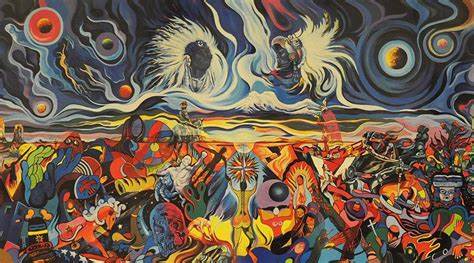This is the VOA Special English Education Report.
The University of California will offer the nation’s first doctoral program in Chicano studies. Chicanos are people of Mexican ancestry who live in the United States. Females are often called Chicanas.
The program will begin in two-thousand-four at the campus in Santa Barbara, north of Los Angeles. Santa Barbara is one of ten campuses in the University of California system.
Chicanos and other Hispanics have recently become the largest minority group in the United States. The Census Bureau estimates the numbers at just under thirty-nine-million as of July of last year. That was more than thirteen percent of the population. Hispanics live all over the country, but half live in California and Texas. Most Hispanics have family roots in Mexico.
Chicano studies is not a new area in education. But the doctoral program at Santa Barbara will greatly expand the possibilities for the most intensive level of study.
Ten years ago, the Department of Chicana and Chicano Studies at Santa Barbara had three teachers. Today it has twelve. They work with one-hundred-fifty students who have chosen Chicano studies as their major area of study. Many other students from outside the department also take courses there.
A committee led by a former department head, Maria Herrera-Sobek, proposed that the university let students earn a doctorate, or P-h-D, in Chicano studies. The University of California also approved a master’s degree program.
Other colleges in the United States also offer courses about the experience of Americans of Spanish-speaking heritage. But most of the students are undergraduates; they do not yet have a college degree.
The University of Texas in Austin, for example, created a Center for Mexican-American Studies in nineteen-seventy. Students can earn an undergraduate degree that centers on public policy and cultural studies. The courses include Mexican American legal history and politics.
The University of Notre Dame, in South Bend, Indiana, has a new set of courses in its Institute of Latino Studies. These will begin in September. The material in the new courses at Notre Dame will center on Mexican-Americans but also people of other Latin heritage.
This VOA Special English Education Report was written by Jerilyn Watson.
